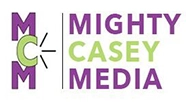The Tear Gas I traveled to Santiago, Chile recently. My timing was auspicious, since my news-puke bingo card still had an open slot preventing me from screaming BINGO at the top of my lungs. That open square was “get tear gassed” — it got filled at around 11am Atlantic Time on Monday, October 21, as tear gas rolled down Avenida Libertador General Bernardo O’Higgins, called La Alameda by locals. It’s really hard to scream BINGO at the top of your lungs while getting tear gassed, by the way. In case you wondered. I was in Chile to attend and speak at the annual Cochrane Colloquium, a global meeting for health researchers, science geeks, and health policy nerds from all over ever’where, to share the experience of being part of the first #PatientsIncluded Cochrane Colloquium in Edinburgh last year. The conference was scheduled to start on Tuesday, October 22. On Thursday, October 17, Chilean citizens — who have had to put up with A LOT over the last sixty or so years — got fed up with ever increasing costs of living and took to the streets to protest a subway fare hike, led by high school students who jumped turnstiles to evade paying the new fare. EVADE become the mantra of the protest, which kept growing over the next couple of days, with some seriously crunchy stuff happening — a Walmart in Valparaiso got burned down, and a Santiago office tower occupied by an energy company burned, too. All of this was ramping up as I traveled from the US to Chile on Saturday into Sunday, October 19 and October 20, so when I got to Santiago on Sunday morning, there was already a curfew on tap, and a whole lot of military dudes in camo and battle gear wandering…
If you’ve been paying attention, you know that yours truly got the chance to attend the annual Cochrane Colloquium in Edinburgh in September this year, thanks to a travel stipend from SPM, a #PatientsIncluded bursary from Cochrane UK, the hosts of the 2018 Colloquium, and a stipend from the NHS for the #BeyondTheRoom project to help cover the event for the global audience. And I’m sure there are a good number of you who are still thinking, “That’s great, but what the heck is Cochrane? And how did they get to be the ones running the ‘Hogwarts Sorting Hat’ of global medical evidence?” Forgive me, but I’m a comedy writer, and that breaks through from time to time, no matter how hard I try to stifle it. Anyway, Cochrane is named for a Scottish doctor, Archibald Leman “Archie” Cochrane, who wrote “Effectiveness and Efficiency: Random Reflections on Health Services” (the link will let you download the whole book in PDF) in 1972. Archie Cochrane advocated for randomized clinical trials (RCTs) for, well, everything – treatments, practice methods, research protocols, an “all of the things” approach, on a loop – which was not how medicine was being practiced under the prevailing “doctor knows best” practice model in place across the globe. “The art of medicine to preserve autonomy, the science of medicine to preserve authority” rules pointed out by many people seeking to make medical science more science than “because it’s how I do things” – those rules have been snarked at by both your correspondent, and Dr. Al Mulley at Dartmouth, among a host of others. Archie Cochrane influenced the thinking, and practice, of many other clinicians with his thought leadership on practice variation, practice standardization, and the use of RCTs to fine tune medical science. One of the people he influenced was Iain Chalmers, who, in 1993,…
I won the big platinum #PatientsIncluded ring (much better than brass) this year with an opportunity to attend the Cochrane Colloquium, the global health science and health services research meeting that happens somewhere on Planet Earth every year. This year it was hosted by Cochrane UK, with the venue in the heart of Edinburgh, one of the best little cities in the world. Since Cochrane UK was determined to sport the Patients Included badge, they started inviting people/patients from around the world to think about applying for a scholarship (in UK-ese, a bursary) when the starting gun fired in the spring of this year. They have a very effective Twitter presence, so I got pinged early. I volunteered to serve as an abstract reviewer, on the theory that every little bit (of contribution) helps, both for getting great content and demonstrating one’s enthusiasm for the project. When the application process opened, I was ready, and hit the “get a letter of recommendation from a Cochrane research group” daily double when Gordon Guyatt, the father of evidence based medicine in the 20th/21st centuries, and his entire MAGIC team wrote and signed my letter. THAT was a really good day around here! When word arrived that I had been awarded a scholarship, there was also news that I’d won a couple of bonus rounds on travel assistance – one was a travel stipend from the Society for Participatory Medicine (thanks, guys!), and the other was being selected to be part of the Beyond The Room team for the conference. Here’s what that was about, directly from the Cochrane Colloquium page inviting applications: “Also new this year is that we’re putting together a team to take the event #BeyondTheRoom. This digital conference service was started in 2016 by André Tomlin from the Mental Elf who saw an opportunity to increase the reach and impact of…



